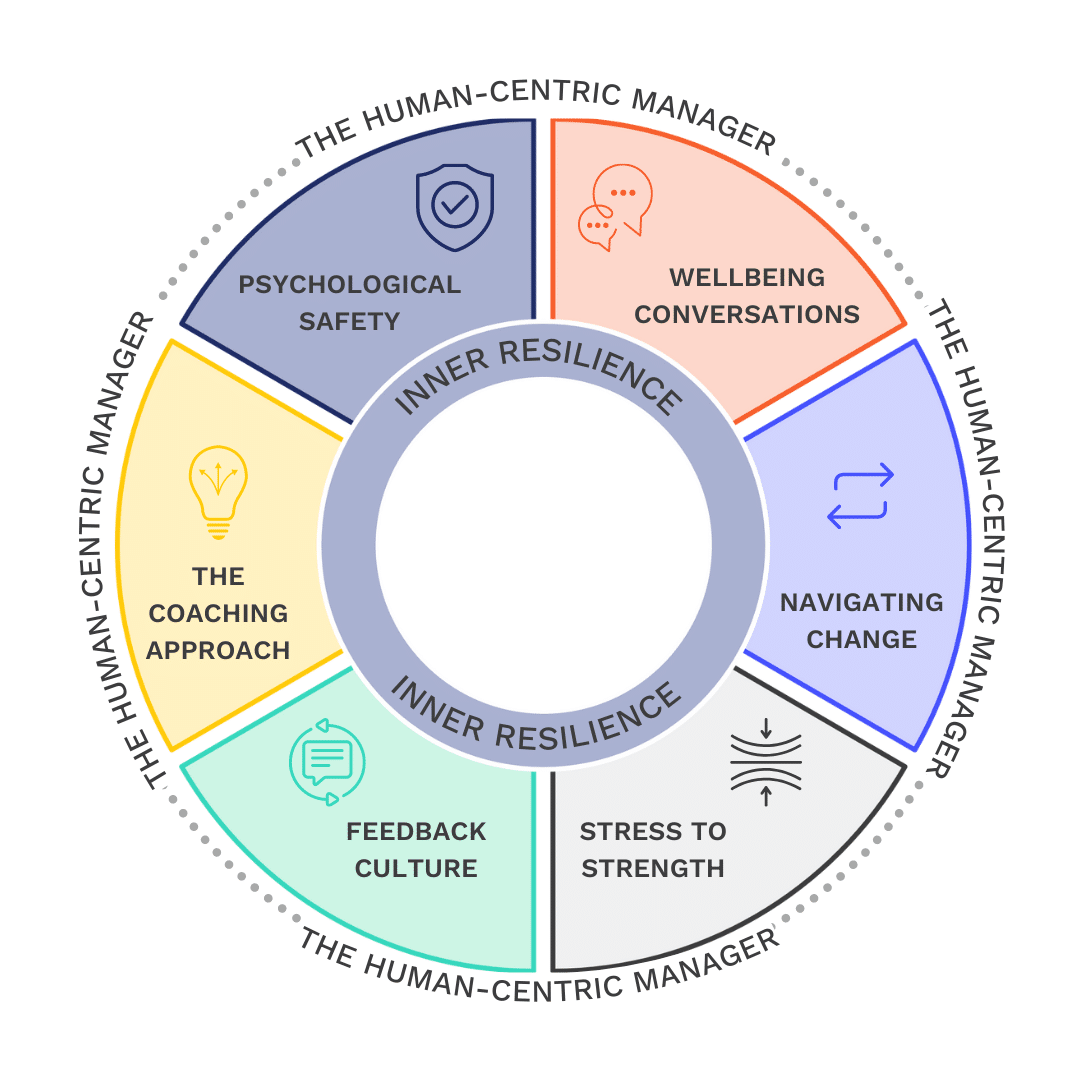21 April 2023
The Human-Centric Manager
The business world is constantly evolving, and so is the role of a manager. In the past, it was enough for a manager to simply direct and control their employees. Today's managers need to be much more than that. They need to be able to cultivate a workplace culture that values innovation, creativity, and collaboration. This is where human-centric management comes in.
Redefining management in the 21st Century
What is human-centric management? At its core, it’s a leadership philosophy that places people at the centre of all managerial decision-making. It recognises that employees are not just cogs in a machine, but individuals with unique strengths, challenges, and aspirations.
Picture this: a garden with vibrant, thriving plants, bursting with life and colour. A skilled gardener tends to the plants daily, providing nourishment, support, and care. They understand that each plant has unique needs and requires individual attention. At the same time, they must cultivate and nurture the soil, water, and sunlight that are essential for a plant to grow. The human-centric manager cultivates the workplace culture to create fertile ground for success.

The human-centric manager develops their team’s skills and abilities.
To be an effective human-centric manager, you must invest time and energy in developing your team’s skills and abilities. This means taking a personal interest in your employees’ development and encouraging them to pursue their passions. It means creating an environment where employees feel comfortable sharing their thoughts, opinions, and concerns. When employees feel seen and heard, they are more likely to be engaged and motivated.
The human-centric manager prioritises psychological safety.
Human-centric management also prioritises psychological safety. In a psychologically safe environment, employees feel comfortable taking risks and making mistakes. This creates an atmosphere of innovation and creativity, where employees are encouraged to experiment and try new things.
The human-centric manager navigates their team through change.
Change is a constant and in today’s fast-paced business world, it’s happening at an accelerated rate. Human-centric managers must be able to guide their team through change, while ensuring that they feel supported and empowered during the transition. They must have the ability to communicate effectively, provide clarity and direction, and offer resources and training to help their team adapt to the new circumstances. Change can be unsettling, but with a human-centric approach, managers can create a sense of stability and security within their teams, helping them to weather any storm.
The human-centric manager leads by example.
Human-centric management is also about leading by example. Managers must prioritise their own well-being and development. They must model healthy habits and be open about their own struggles and challenges. When employees see their managers taking care of themselves, they are more likely to prioritise their own well-being.
The human-centric manager drives business results.
It would be wrong to think that human-centric management is just about being kind and empathetic; it’s also about driving business results. Research shows that companies with a strong culture of feedback and employee well-being are more likely to outperform their competitors. And by empowering employees to be more innovative and creative, human-centric management can lead to new products, services, and revenue streams.
The human-centric manager empowers creativity, innovation and growth.
Human-centric management is not just a buzzword, but a powerful new approach to leadership that can drive business success and unleash the full potential of a team. By focusing on empathy, authenticity, feedback, and change, and adapting their approach to the needs of a team, managers can create a culture of trust, collaboration, and empowerment that drives creativity, innovation and growth.
Discover our programmes for developing human-centric managers
Find out more aboutour programmes for developing human-centric managers.









